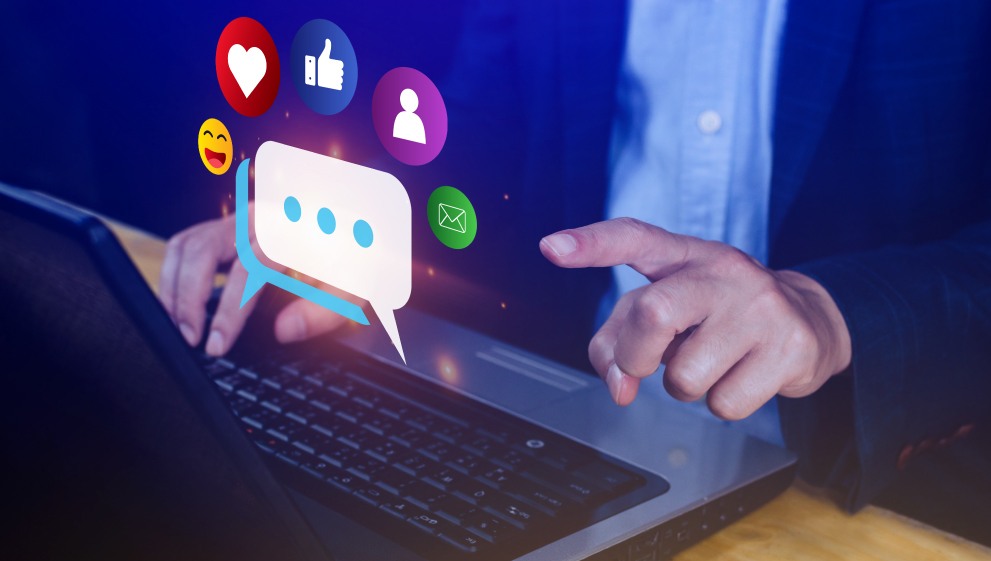These days, social media plays a central role in our lives. While it connects us with friends, family, and the world, it also comes with risks if privacy on social media is overlooked. Inadequate privacy settings on social media can lead to unauthorized access to your personal information, exposing you to various threats like identity theft, harassment, or even financial fraud.
Did you know that 33% of respondents left social media platforms due to data privacy policies? This statistic highlights the growing awareness of social media privacy issues and their impact on user behavior.
Therefore, understanding how to manage your social media privacy is crucial to having a safe online experience. Let’s explore essential tips and strategies to safeguard your online presence.
What is Social Media Privacy?
Social media privacy refers to the control you have over what information you share online and who can see it. Every time you post a photo, update your status, or share a location, you’re putting a piece of yourself out there. If not managed properly, this information can be accessed by people you don’t know or trust. Being cautious about your privacy on social media is not just about keeping secrets; it’s about maintaining control over your personal information and ensuring it’s used the way you intend.
Addressing Common Privacy Issues
Several common privacy issues on social media can put your personal information at risk. Let’s take a look at these issues and how to address them:
- Oversharing Personal Information
Oversharing can be a significant privacy risk. Be cautious when sharing details like your home address, phone number, or financial information. Avoid posting sensitive data like your social security number, credit card details, or passwords, as this can put you at risk of identity theft or financial fraud. Use privacy settings to control who sees your posts and information.
- Phishing Scams
Phishing scams are another common issue on social media. Be wary of suspicious messages or links from unknown sources, and verify the authenticity of messages or links before clicking or responding. Enabling two-factor authentication adds an extra layer of security to your accounts, making it harder for scammers to gain access.
- Fake Profiles and Identity Theft
Fake profiles and identity theft are also concerns. Be cautious when accepting ‘friend requests’ or ‘follow requests’ from unknown individuals, and verify the authenticity of profiles before connecting. Regularly monitor your accounts for suspicious activity and report fake profiles.
- Location-Based Services
Location-based services can compromise your privacy. Be mindful when using these services, as they can reveal your whereabouts. Use privacy settings to control who can see your location, and disable location services when not in use.
- Data Breaches
In the event of a data breach, it’s important to act quickly. Monitor your accounts for suspicious activity and report any unauthorized access. Using strong, unique passwords and enabling two-factor authentication can help prevent breaches. Keeping your devices and software up-to-date with the latest security patches is also vital in protecting your personal information.
By addressing these common privacy issues on social media, you can significantly reduce the risk of your personal information being compromised.
Utilizing Privacy Tools Effectively
To manage your social media privacy, you need to utilize the built-in privacy tools effectively. Here’s how:
Check Your Privacy Settings
- Review your social media privacy settings regularly to ensure that only trusted individuals have access to your information.
- Set your default privacy settings to “private” or “friends only” to limit who can see your posts and information.
- Be cautious when using location-based services, as they can reveal your whereabouts.
Use Strong Passwords
- Create unique, lengthy passwords with a mix of letters, numbers, and special characters for each social media account.
- Avoid using easily guessable information like your name, birthdate, or common words.
- Consider using a password manager to securely store and generate strong passwords.
Enable Two-Factor Authentication
- Activate two-factor authentication (2FA) to add an extra layer of security to your accounts.
- 2FA requires a second form of verification, like a code sent to your phone, to log in to your account.
- This makes it harder for hackers to access your accounts, even if they have your password.
Tips and Strategies for Privacy Control
By following these tips and strategies, you can effectively manage your social media privacy and protect your digital identity:
- Be Selective with Friend or Follow Requests: Don’t accept requests from people you don’t know or trust. Scammers often create fake profiles to get in touch with you.
- Limit Personal Information Sharing: Avoid posting sensitive details like your date of birth, home address, or financial information. Cybercriminals can use this information to steal your identity or target you with phishing scams.
- Use a VPN for Added Security: A Virtual Private Network (VPN) hides your IP address and encrypts your internet connection, making it harder for hackers to track online activities.
- Monitor Your Accounts: Regularly review your social media accounts for suspicious activity, such as unfamiliar login locations or devices.
- Use Privacy-Focused Social Media Platforms: Consider using social media platforms that prioritize user privacy.
Strengthen Your Social Media Privacy with Quick Heal
Protecting your social media privacy doesn’t have to be complicated. By being mindful of what you share, using strong passwords, enabling two-factor authentication, and keeping an eye on your privacy settings on social media, you can take control of your digital identity. Simple tools like VPNs and anti-malware software can also add an extra layer of security.
Consider checking out Quick Heal Total Security to keep your devices safe from online threats. With real-time protection and strong defenses against malware, it helps you stay secure while enjoying your online activities.
For just Rs. 1591 a year, secure yourself online with Quick Heal!
